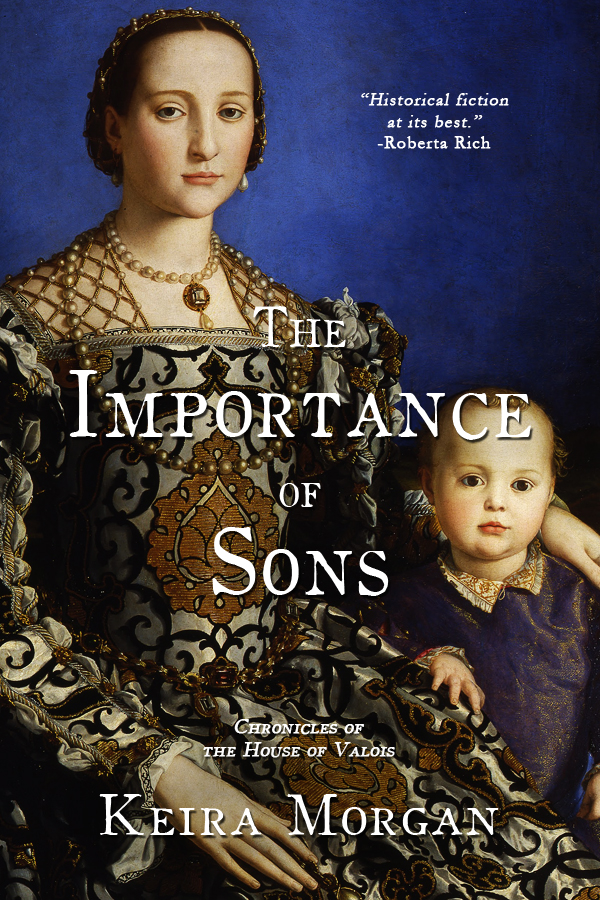
Can Anne make a home for herself in her enemy’s divided court?
When fifteen-year-old Anne of Brittany marries young, chivalrous King Charles VIII of France, he promises to respect and defend Brittany’s rights. She reluctantly gives up her power as its independent duchess to become Queen of France.
Anne works to gain Charles’s love so he will trust her enough to return to her the right to rule Brittany. Two Frenchwomen resent her from the moment she arrives. Both Countess Louise d’Angoulême, who has been told her son will be king of France, and Madame la Grande, the king’s sister, who was her brother’s regent during his youth, see the tiny, beguiling queen as a rival.
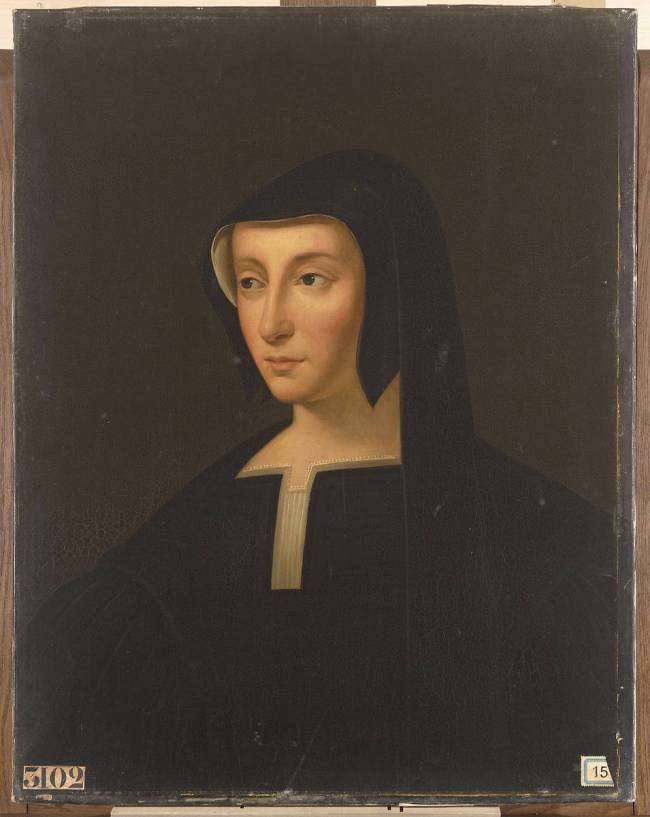
All France rejoices when Charles-Orland is born—except one woman. Countess Louise d’Angoulême resents Queen Anne from the moment they meet. The countess is determined that her son shall reign. When the king sets off for Italy, his sights set on conquest, he appoints his sister as regent. Countess Louise, using her considerable skills for intrigue, grasps the opportunity to challenge the queen.
Can Anne befriend her husband’s sister, who orchestrated the defeat of Brittany, and regain control of her beloved duchy? Can she protect her marriage from Louise’s determination that her son will be the next king? Whose son will succeed to the throne?
Based on the eventful lives of Queen Anne of Brittany and Countess Louise d’Angoulême, this is the riveting story of a dangerous rivalry between two strong women in a man’s world. It takes place at the dawn of the turbulent French Renaissance, when royal women emerge from the shadows to wield political power.
Why The Importance of Sons?
I titled my story The Importance of Sons. Yet my novel focuses on the rivalry between two women. King Charles’s two sisters also play important roles. In my novel, women are central. Still, sons are crucial because at the time men dominated political and legal power.
Because I am writing a novel not history, I do not explain the ins and outs of how and why men had created the situation that existed. Yet I found it fascinating, and it is the basis for why the events in my story happened as they did. I wrote this for those who like to know the background behind the story.
To summarize the situation as the story opens:
My heroine, Anne, Duchess of Brittany,* is on her way to the French court, accompanied by Duke Louis d’Orléans, who hates Madame la Grande, the regent.* She is the older sister of King Charles VIII,* whom Duchess Anne must marry to resolve the war Brittany lost to France.
Here is the background to each of the starred (*) elements. I have related each to the historical importance of sons/men.
Anne de Montfort, Duchess of Brittany
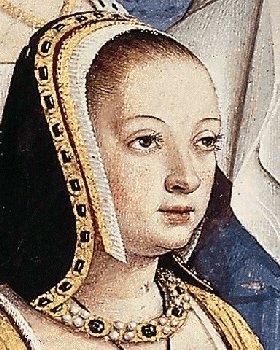
First, Anne is Duchess of Brittany. This came about despite the intention of the customary law governing inheritance. Women could only inherit if there were no male heirs. For several generations, the Montfort family had failed in the male line, and her father was the last male in direct descent from Duke Jean IV. When Anne’s father died, he left no legitimate sons, only two underage daughters, two illegitimate children, and a disputed inheritance.
Because the duchy of Brittany was independent of France, French law did not apply, fortunately for women. Women could inherit, but only after the male line had been exhausted. Therefore, Anne was the legitimate heiress.
In a curious quirk of the law, people could sell their claims to the right of inheritance. King Louis of France had purchased Jeanne de Penthièvre’s claim to the right to inherit the duchy of Brittany. When Duke François II died, Madame la Grande, regent for King Charles of France, disputed Duchess Anne’s claim to the Duchy of Brittany on her brother’s behalf using this purchased right. This was the French justification for going to war against Brittany. Anne lost the war.
Duke Louis d’Orléans hates Madame la Grande, who is regent
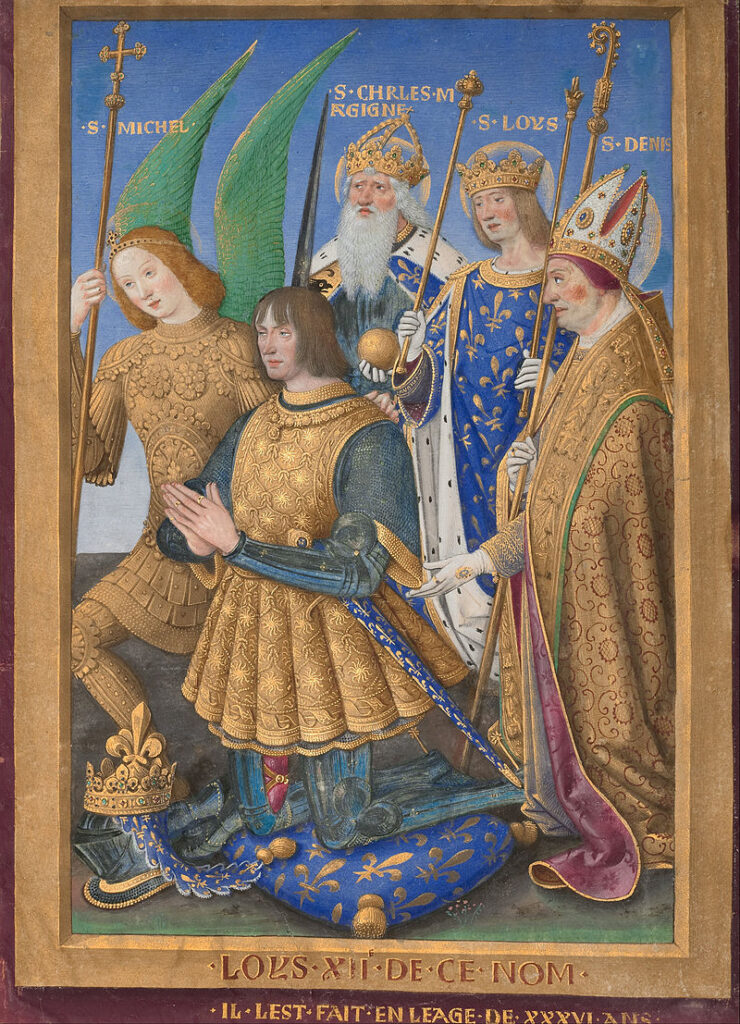
In 1485, Duke Louis rebelled against Madame la Grande, who was regent for King Charles VIII. He then fled to Brittany and fought on the side of Anne’s father, Duke François II during the French-Breton war. Why?
In his mind, it was simple. He had been denied his right to be regent. In 1483, when King Louis XI of France died, his young son Charles VIII was only 13 years old, too young to rule. He required a regent. Duke Louis d’Orléans, the closest male in line to the French throne, (first Prince of the Blood and 2nd cousin to the king) would normally be named regent. King Louis XI bypassed his claim and chose Charles’s older sister, Madame la Grande, in Duke Louis’s place. In outrage, Duke Louis took his case to the Parlement. When it rejected his case, he rebelled.
Madame la Grande, older sister of King Charles VIII
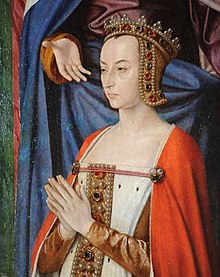
Why did Louis XI choose Madame la Grande as regent? Also, why did she not become queen of France?
I’ll start with the second question. In France, women could not inherit the throne under any circumstances. Why not?
In 1328, King Charles, King Philip IV’s last son, died without heirs. However. King Philip still had a living grandson, descended from his daughter, Isabella, Queen Consort of England. Until then, France had never barred descent through the female line.
A conflict arose over who should become the next ruler of France. Edward III, King of England, Isabella’s son had the most direct claim.[i] A French nephew, son of one of King Philip IV’s brothers was the other choice.
The French did not want an English king. Nor did they want their country to fall under English rule or English laws. They set their jurists to looking for a legal precedent to avoid it. They found it in King Clovis and the Salic Law, which forbade the inheritance of lands (royal lands) in the female line. This led to the One Hundred Years War, but no woman has ever sat on the French throne.
To me, it seems like a high price to pay.
Madame la Grande, Regent
The last question I raise is: why was Madame la Grande regent?
Technically, from1483 to 1491 she was not regent, but co-regent with her husband, Duke Peter de Beaujeu. Even King Louis XI, wily old fellow that he was, knew better than to defy convention by naming his daughter sole regent. That would have given Duke Louis a legal case to overturn the king’s will.
The only exception French law permitted to women as rulers was to mothers of underage kings. They could act as regents. Even then, they could only rule with a male regency council. King Louis should have named Charles’s mother, Queen Charlotte, as regent rather than their daughter, but King Louis had no respect for his wife. He had respect for only one woman, his daughter, of whom he is reported to have said, “she is the least foolish woman in France.”
Note that he did choose her, not a man, as his only son’s regent. This decision represents a shrewd man’s choice of competence and trust over gender and law. Few would have made the same judgment. Also, Louis disliked and distrusted Duke Louis d’Orléans. That he had to disguise his real preference by including her husband illustrates the obstacles that women, no matter how competent, faced. My novel reflects this reality and shows how women dealt with it.
[i] https://thefreelancehistorywriter.com/2016/04/15/salic-law-and-the-exclusion-of-women-from-the-crown-of-france/
UNIVERSAL LINK: https://books2read.com/b/importanceofsons22
AMAZON US: https://amazon.com/Importance-Sons-Chronicles-House-Valois-ebook/dp/B0B16KH1LG
AMAZON UK: https://www.amazon.co.uk/Importance-Sons-Chronicles-House-Valois-ebook/dp/B0B16KH1LG
Meet Keira Morgan

Keira retired from training and management in the Canadian Public Service to follow a career as an author. She now writes from Mexico where she lives happily with a husband, two cats and two dogs. Her doctoral level studies in Renaissance history underlie her historical fiction. She writes about the turbulent sixteenth-century French Renaissance. Her stories tell of powerful women who challenged tradition to play crucial roles in French affairs. Find out more at KJ Morgan — Writer
She also maintains a non-fiction website, All About French Renaissance Women, [https://www.keiramorgan.com] where she writes about the lives of Frenchwomen during the era. She plans to collect their biographies into a book.
Connect with Keira
Author Website: https://www.keiramorgan.com/
Book Page Link: https://books2read.com/r/B-A-VLAQ-YHVXB
Twitter: https://twitter.com/KJMMexico
Facebook: https://www.facebook.com/kjmorganwriter
Instagram: https://www.instagram.com/renaissancefictionlady/?hl=en
Thanks so much for hosting my guest post Mercedes.